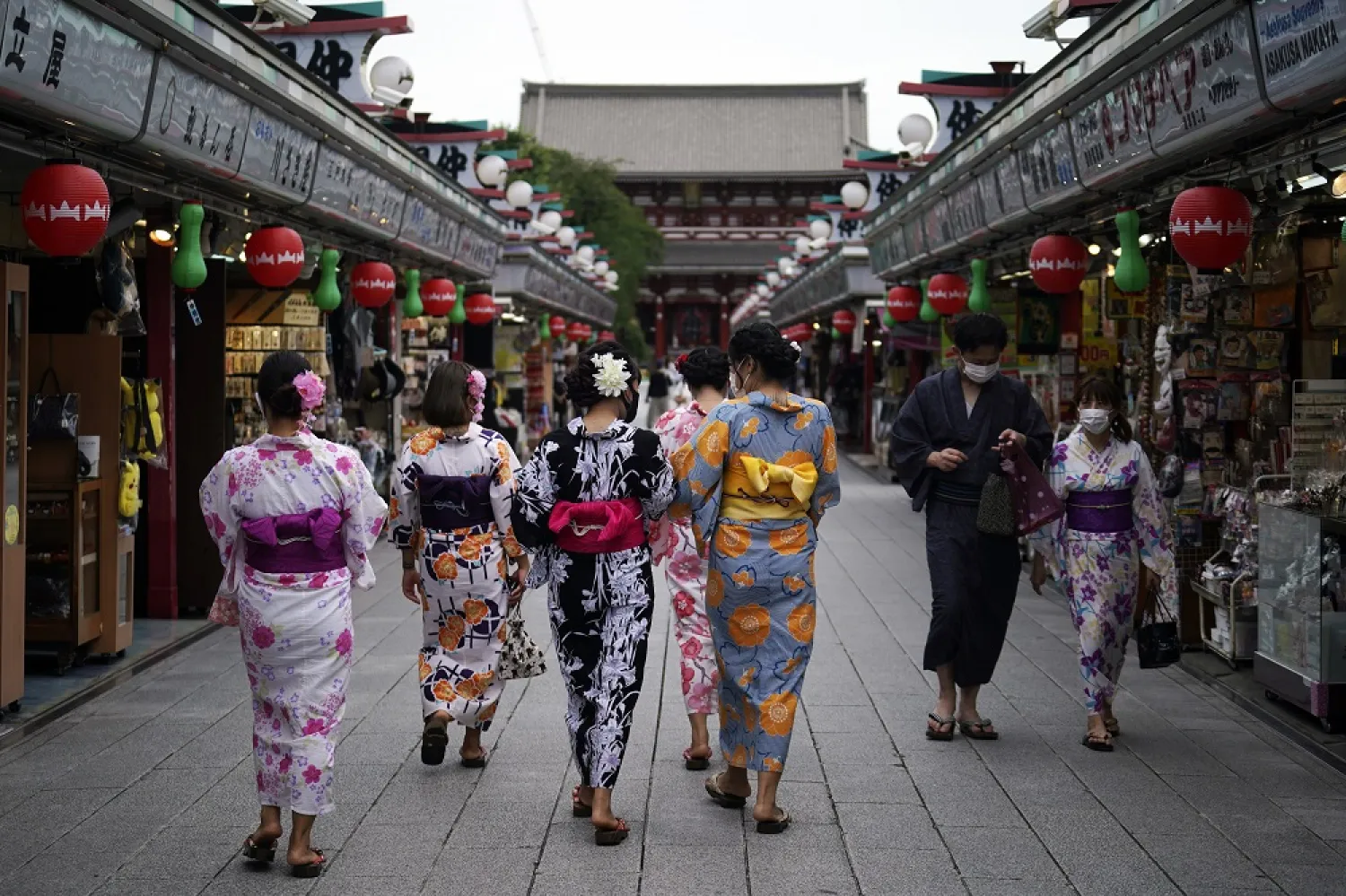Japan will open its borders to foreign tourists in June for the first time since imposing tight pandemic travel restrictions about two years ago, but only for package tours for now, the prime minister said Thursday.
Beginning June 10, Japan will allow the entry of people on tours with fixed schedules and guides, Prime Minister Fumio Kishida said.
Tourists from areas with low COVID-19 infection rates who have received three vaccine doses will be exempt from testing and quarantine after entry.
Japan this week is hosting small experimental package tours from four countries, Australia, Singapore, Thailand and the United States. That experiment, which involves only 50 people who received special visas, not tourist visas, is to end May 31.
"Free and active exchange of people is the foundation of economy and society, as well as that of Asia’s development," Kishida told his speech at a Tokyo hotel Thursday.
Japan, while watching the infection situation, will gradually accept more tourists in stages to the level of arrivals before the pandemic, he added.
After facing criticism that its strict border controls were xenophobic, Japan began easing its restrictions earlier this year and currently allows entry of up to 10,000 people a day, including Japanese citizens, foreign students and some business travelers.
Japan will double the cap to 20,000 a day from June 1, which will also include package tour participants, said Makoto Shimoaraiso, a Cabinet official in charge of pandemic measures.
The scale of the package tours and other details will be finalized after officials evaluate the results of the current experimental tours, he said.
It will take some time before foreign visitors can come to Japan for individual tourism, Shimoaraiso said.
Japan this week also eased requests for mask wearing. While masks are still requested on public transportation, hospitals and other public facilities, people can take off masks outdoors where others are not around or talking. Despite the easing, most Japanese so far are seen sticking to wearing masks in public.
Japan’s tourism industry, hit hard by the border controls, is eager for foreign tourism to resume. COVID-19 infections have slowed in Japan since earlier this year and the government is gradually expanding social and economic activity.
Kishida said during a visit to London earlier this month that he planned to ease the border controls as early as June in line with the policies of other Group of Seven industrialized countries, but gave no further details.
Foreign tourist arrivals fell more than 90% in 2020 from a record 31.9 million the year before, almost wiping out the pre-pandemic inbound tourism market of more than 4 trillion yen ($31 billion).









